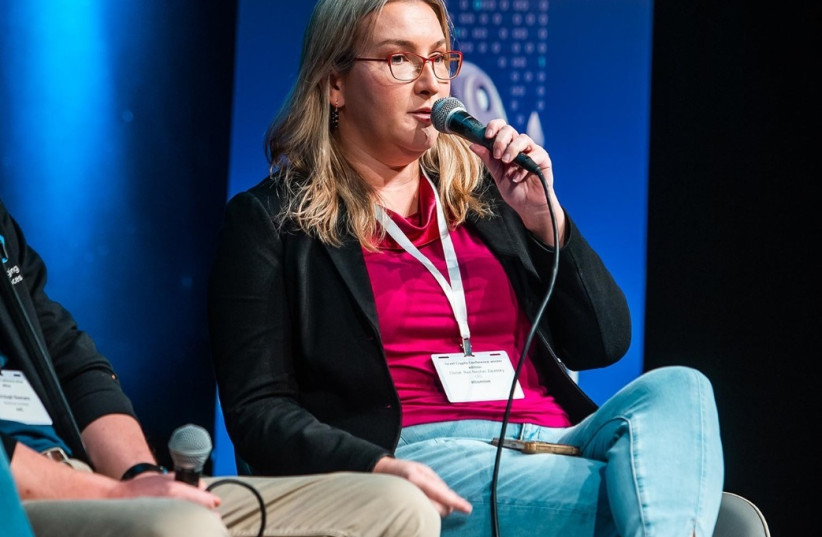In the face of a global market downturn, internal political reforms, and the recent conflict, Israel's start-up ecosystem is demonstrating remarkable resilience. The agility and innovative spirit of Israeli start-ups are being tested as they navigate these challenges.
The initial shock of the October 7 terrorist attack has given way to a display of entrepreneurial fortitude and tenacity.
How Israeli start-ups are innovating and adapting in the post-October 7 reality
"As Israel's market faces challenges, we see most start-ups splitting into two groups," says Dan Aks, managing partner at IBI Tech Fund. "The key difference lies in the startup leadership and their ability to keep going and improvise. Even with some team members called up for reserves and schools closed, the best teams are still working at a strong pace." He continues, "Our VC community is also bouncing back, working hard to secure funding from LPs to support these start-ups into the future. As an early-stage fund, we are more focused than ever on the founder teams’ DNA."
Sharon Zalewski, hi-tech partner at EY Israel, the leading financial firm in the market, notes the struggle for seed-stage startups. "Since October 7, securing financing has been a hurdle," she acknowledges. "Founders are now strategically reducing expenses to extend their runway, focusing on achieving key business goals. Meanwhile, the Israeli government is stepping up with R&D grants and government-backed loans on favorable terms. This environment creates a prime investment opportunity for venture capital in these early-stage ventures at reasonable valuations."
Gigi Levy-Weiss, general partner at NFX, remains optimistic about the future of Israeli tech. “While these are challenging times, Israel will prevail, and the Israeli tech ecosystem will remain one of the top innovation ecosystems globally. I believe that Israeli start-ups will emerge stronger than ever and that the current turmoil presents a unique opportunity to invest in top Israeli companies.”

Amid this backdrop, fintech innovator Alsomine is making strides with its blockchain-powered platform for gift card e-commerce. "Launching sales in September, we were poised for our next funding phase when the horrific terrorist attack happened," reflects Osnat Ben Nesher Zaretsky, co-founder and CEO. "Our immediate concern was the wellbeing of our team and partners. Despite some serving in reserves, our dedicated staff and supportive investors have kept us on course—committed to our mission and growth." A month on, she adds, "We've adapted to a new normal: working, aiding our community, and progressing with sales and fundraising. We're now witnessing a surge of investor interest, drawn to the potential for valuable investments in our resilient startup landscape."
MICA AI Medical, a company specializing in AI-driven early breast cancer detection, is another example of Israeli innovation. "Our fundraising kicked off in October, aligned with breast cancer awareness, and was halted abruptly. Yet, our team's strength and the groundbreaking results published just last week show our AI's potential to significantly reduce unnecessary screenings. We are dedicated to helping save lives, now more than ever" says founder and CEO Lior Wayn.
Soapy, a hygiene technology pioneer, has faced its third market crisis since its inception in 2018. "We’ve also recently embarked on our Series A round, our resilience stems from our culture of empathy and support, with investors who understand and customers who trust we put them first," shares Max Simonovsky, founder and CEO. "Redirecting more operations to our New York office amidst these trying times, we remain dedicated to delivering our Israeli-developed technology to the world, no matter what."
The cybersecurity sector, which has seen significant acquisitions announced just in recent days, isn’t short if strong exciting start-ups. ClickFreeze, with its AI and sophisticated algorithms, stands as a bulwark against internet bots and attacks. "We're the eco-cleaners of the internet," says David Allouch, CEO of ClickFreeze. "With over half of internet traffic being bots, we're making the digital realm safer from frauds that cost the economy billions."
Trustifi, a leader in AI-powered email security, exemplifies the adaptability of Israeli tech. "Our unique technology allows for easy remote deployment and management, making us resilient to geopolitical crises," says Rom Hendler, CEO. "With a third of our Israeli team drafted, we've maintained high margins and are on track for our next $5 million funding round."
Propel AI, at the vanguard of Public Relations Management (PRM) technology, is leveraging this period to strengthen its position. "Now is the best time to invest in Israeli start-ups," asserts Zach Cutler, co-founder and CEO. "The legendary Israeli resilience is at an all-time high. We're mobilized not only to support the war effort but to ensure Israeli tech excels, paving the way for a robust economy. Investors seeking value need look no further than Israeli startups."
Israel's Start-Up Nation is no stranger to adversity, yet it consistently emerges stronger. Its start-up ecosystem isn't just enduring—it's gearing up for a powerful resurgence. The resilience woven into the nation's DNA is once again igniting innovation and growth, even amid the toughest of times.
